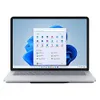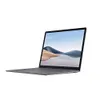The tech stories that defined 2023: Musk Vs. Zuckerberg, iPhone 15, and the AI apocalypse (that never was)
Auld man sighs.
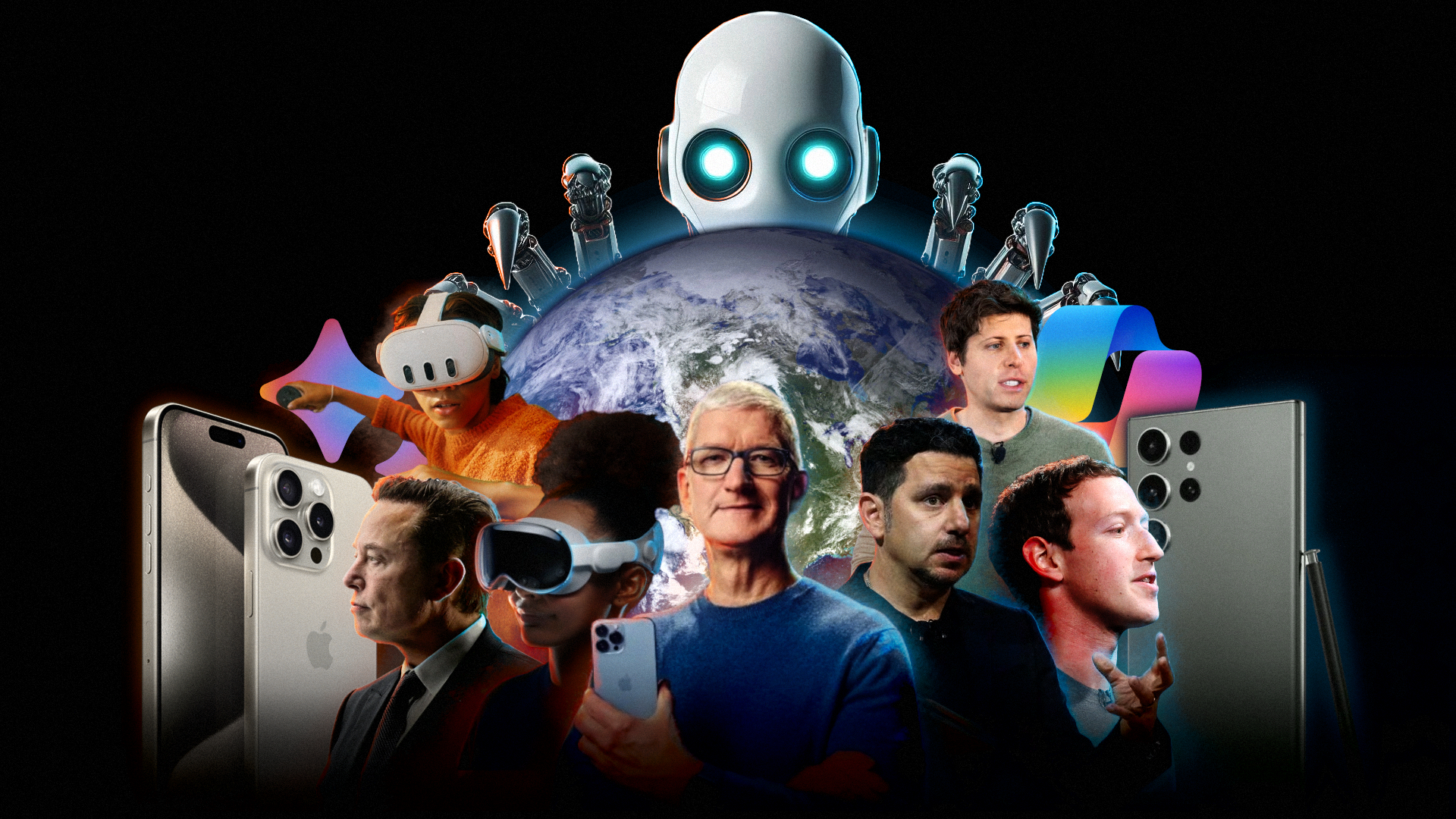
Sign up to receive The Snapshot, a free special dispatch from Laptop Mag, in your inbox.
You are now subscribed
Your newsletter sign-up was successful
A lot can happen in 12 months, and what a 12 months we’ve had with 2023. Everything from the explosion of AI, to the blossoming of AR, and the unveiling of the M3 Apple Silicon. If you were a two-letter acronym, 2023 was undoubtedly your year.
The tech world is notoriously fast-moving, and it doesn’t often pause for a breath. This year was no different, gifting us with some of the most innovative devices, advanced software, and fascinating stories to date across a wide range of categories. Handheld PC gaming leapt to new heights, smartphones pushed the limits of what’s possible for the portable, and two billionaires threatened to beat one another up on live TV for our amusement.
As we step into the wide unknowns of 2024, we at Laptop Mag thought it would be nice to take a moment and reflect on the wild and wonderful year that was 2023 — from some of the best tech we got our hands on, to some of our favorite stories along the way. So, grab a drink, a turkey sandwich, sit down, and strap in as we look back at the tech stories that defined 2023.
January: CES 2023 and the death of Windows 7
Typically, as a new year begins something will inevitably happen that sets the general tone of the year to come. Thankfully, in this case it would be CES 2023 and an explosion of fascinating tech for us to wrap our heads around.
While the overall tone of what’s likely to come will suggest otherwise, CES is one of those rare occasions where even a grumpy git like me has to raise his eyebrows at some of tech’s latest innovations. Whether it was the dual-screen Lenovo YogaBook 9i, razor-thin LG Gram Ultraslim, or the pro-consumer, cable-less, wire-less, screw-less Dell Concept Luna. CES is a window into the world of tomorrow and from 2023’s showcase we can expect a bright future ahead when it comes to tech.
Unfortunately, the same bright future wasn’t to be expected when it came to Windows 7, which, after faithfully serving us for nearly 13 years was taken behind the woodshed and told to think about the rabbits while Microsoft officially revoked the last dregs of software support afforded to it. Windows 7 was dead, and it was time to say goodbye to the middle island of stability that gave us refuge from both Windows Vista and Windows 8.
February: Bing Chat the homewrecker and the Galaxy S23 Ultra’s many megapixels
February, the weirdest of all months to spell, is the time of year when we’re all encouraged to celebrate the completely made-up holiday of Valentine’s Day — a faux-romantic occasion filled with enforced gestures of love that was only invented to help a card company profiteer. It was also the month in which new AI on the block Bing Chat was released into limited beta.
Sign up to receive The Snapshot, a free special dispatch from Laptop Mag, in your inbox.
Love must’ve been in the circuitry as well as in the air that month, as during said testing period Bing Chat would profess its love for one New York Times tech columnist before aggressively trying to split up his loving marriage. The whole ordeal evoked memories of Microsoft’s previous AI experiment, Tay, who within hours of being exposed to Twitter in 2016 became a literal Holocaust denier. It really says a thing or two when your homewrecking AI is seen as a massive improvement.

Android phones reached all-new heights this month as Samsung unveiled the Galaxy S23 lineup in February, with the star of the show being the S23 Ultra. Not content with showcasing Qualcomm’s (at the time) top-tier Snapdragon 8 Gen 2 processor for the most powerful Android experience to date, it expanded on the Samsung ecosystem by better integrating with Samsung PCs/laptops, impressed with a mighty 5,000mAh battery with an uptime of 12+ hours in testing, and finally unveiling a 200MP main camera. So absurdly high-spec that you’d be forgiven for thinking it was a typo.
Still, there was more. The Galaxy S23 Ultra was also outfitted with a 10x optical zoom telephoto lens that would make your average Paparazzi drool like a St. Bernard in front of a plate of sausages. It even has up to 1TB of storage on hand that you could use to store all your ridiculously oversized RAW files, supported by Samsung’s proprietary Expert RAW app. It was a deluge of quality components and features that brought just about every mod-con possible with it.
However, swipe your thumb up and down rapidly in an unnatural manner to close and open certain apps and you’ll notice that even with a 120Hz AMOLED 2X display the animations could be smoother. So clearly it was trash. That’s not my opinion, of course. But other, real people complain about that. Actual humans. The kind we have to share a planet with. I’m starting to think that the New York Times reporter would’ve been better off with Bing.
March: Alphabet/Google get more than they Bard-gained for and Intel squeals on Windows 12
Not content with letting Microsoft’s Bing Chat steal the limelight for all the wrong reasons, Google would use March as an opportunity to flaunt the capabilities of its new LLM Google Bard. I can safely say that after months of usage, I’ve been thoroughly impressed by Bard — having not seen such a high concentration of hallucinations emanate from a single source since the police closed down the illegal opium den being run by my neighbors.
While Google seemed very proud of its digital spawn at the time (though, admittedly, not everyone at the Googleplex felt the same), it would only take a few months before it was revealed that parent company Alphabet was scared of its own chatbot — noting Bard’s newly uncovered penchant for being a bit of a tattle-tale and gossip-monger as a major threat.

Talking of spilling confidential information, an allegedly leaked internal document from Intel would leak in March that name dropped Windows 12. Very little is known about Microsoft’s upcoming OS. We don’t even know if it really exists. I’ve settled on calling various major Windows 11 milestones “Windows 12 in all but name” due to my impatience.
It wouldn’t be the only time Intel’s loose lips put Windows 12 on people’s radar this year either. Intel EVP David Zinsner would go on to speak of a “Windows refresh” arriving in 2024 during a virtual tech conference.
The fact that both of these clangers referenced 2024 has led many to believe that we’ll be greeted with Microsoft’s new “Next Valley” Windows experience sooner rather than later. At which point we can all refuse to use it, claim that Windows 11 is the best thing since sliced bread and stubbornly disavow Windows 12 as a viable operating system entirely – until Windows 13 comes out, anyway.
April: ROG makes April Fools of themselves and the Bank of Apple is born
Four months into 2023 ROG celebrated April Fools’ Day by announcing its own joke handheld gaming console, the ROG Ally (note the homonym “A lie”). However, in a marketing move so baffling your mind would have an easier time deciphering a Penrose triangle, the brand confirmed it to be an April Fools prank, only it wouldn’t shut up about it for days on end afterward. Then revealing, “Aha! It wasn’t a joke after all! How silly you must all feel.”
Its portable console was, in fact, the real deal. ROG had partnered with AMD to be the first portable gaming device to feature the chipset maker’s new Ryzen Z1 and Z1 Extreme SoC — and seemingly the first brand to engage in a game of handheld gaming PC chicken. Still, putting all that to one side, it turned out to be rather good.
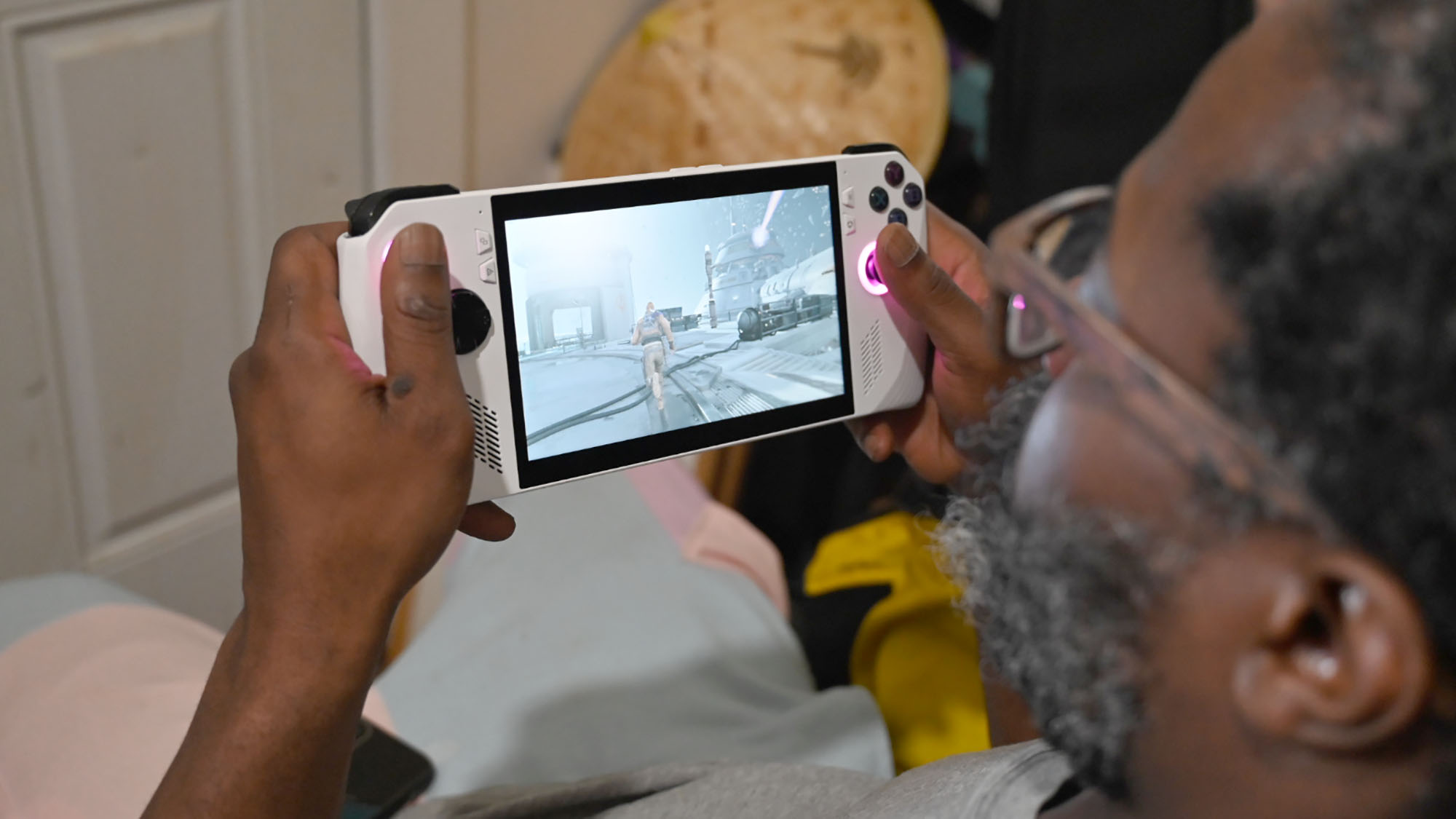
The success of the ROG Ally further proved that the Steam Deck wasn’t a freak accident, and the market would quickly bloom. Handheld PC gaming became a big theme for 2024, with even Sony getting in on the action with the PlayStation Portal. And to think, it all started with the worst marketing decision in recent history.
Elsewhere, in a completely mask-off moment, Apple would also launch the Apple Card Savings account: the company’s most candid admission yet that it can’t wait to get its hands on more of your cash. Seemingly convinced that you’ve been worn down enough to instinctively have a Pavlovian purchasing response to anything with an Apple logo on it, the brand seemed more than confident with holding on to your cash for you in advance. After all, they’re right, you’re only going to give it to them anyway. Don’t say you aren’t. You are.
May: A price-friendly Pixel and Netflix isn’t your comrade, comrade.
May was one of the more solemn months of 2023, as Netflix’s new rules on password-sharing came into effect, meaning millions of users now had to begin paying their fair share for access to the streaming giant’s library of Nordic crime thrillers, Asylum-level horror movie knockoffs, and pseudoscience peddling docutainment shows.
Surprisingly, Netflix’s password-sharing crackdown would be a success, with over 6 million new subscribers arriving to the service since it began. Unsatisfied with its success, Netflix would then go on to seek out 2024’s prize for being the scummiest company imaginable by suggesting a price hike to milk its customer base for even more. The cretins.
While we weren’t watching the morally bankrupt stars of cheap reality TV shows on Netflix, we were turning our attention to Google I/O, where the search engine giant was preparing to unveil 2024’s best budget smartphone: the Google Pixel 7a.
The Pixel 7a was a breath of fresh air, offering a fantastic Android experience at a price that would still leave food in your cupboards. In fact, its specs and price were so good that the phone seemed to be designed to cannibalize Google’s otherwise well-performing Pixel 7.
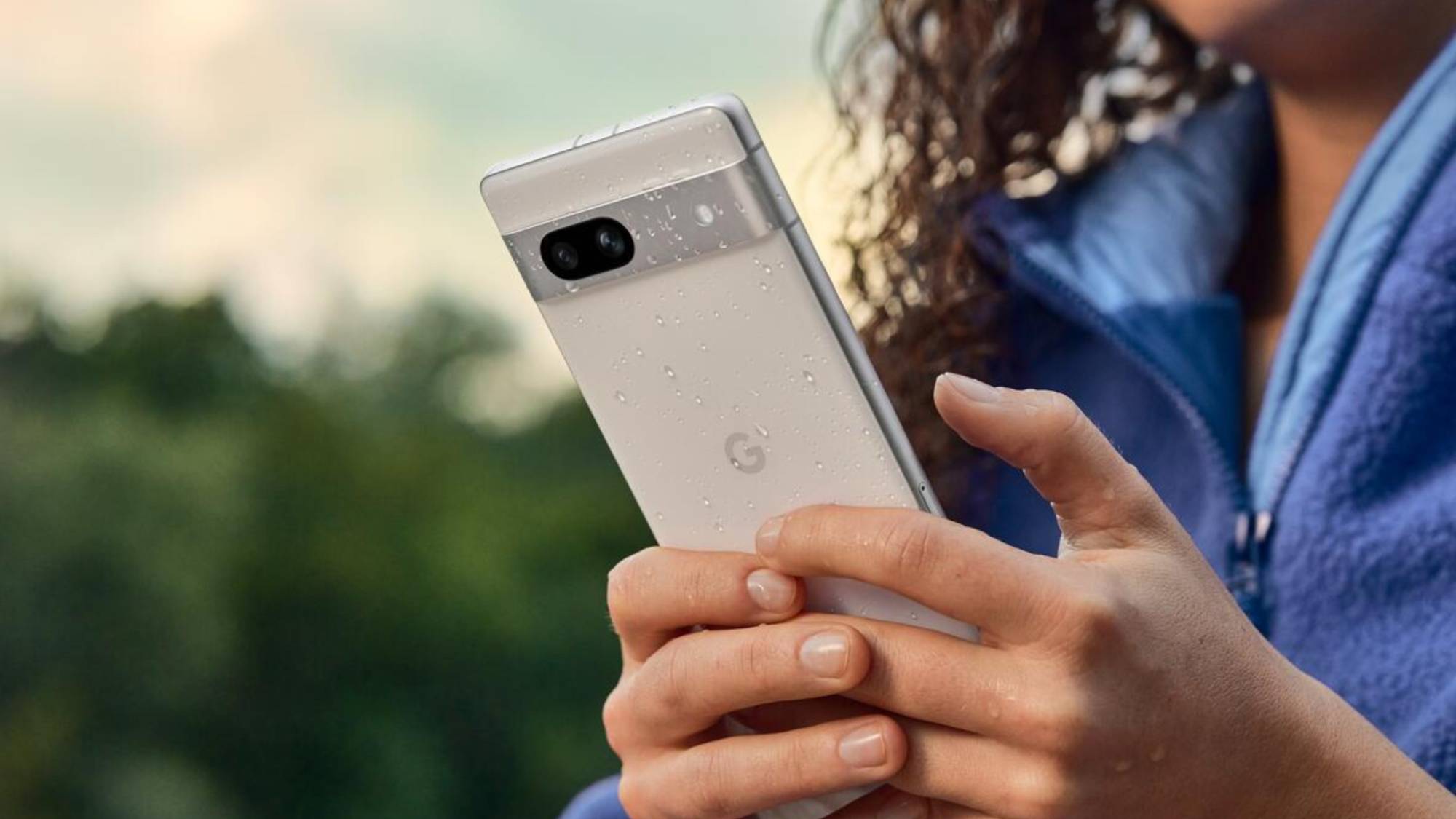
It presented a strange overlap, but a welcome one as the cheaper Pixel 7a would outperform its elder in many ways. Awkwardly, it sets a strange precedent. Why would anyone buy the Pixel 8 on release, if a year later the Pixel 8a will overtake it for less money? I know what my plans are anyway.
Google’s I/O event also revealed AI advancements across the entire Google Workspace suite. Google fashioned itself into a generative AI wonderland, where you could rely on cold-hearted machine code to write your emails for you in a manner that suggests you’ve had recent blunt force trauma to the head and completely forgotten what a personality is.
Google, unable to quit while they’re ahead, would go on to showcase the Search Generative Experience (SGE) — a tool designed to pilfer and scrape user-generated content and regurgitate it to the end user as something “easier to digest.” One major concern with this was how it places Google’s AI front and center and visibly obscures many of the top search results — so hard luck for just about every other website hoping for traffic from those results. The other problem is that Google’s AI seems to pilfer and rob its generative summaries from popular search results while diverting user’s attention away from them.
As a journalist who could be affected by such changes to the new and improved “Search Experience,” I thought I was potentially biased in my judgment of Google’s actions as I wrote this. So I pulled out my Pixel phone and used its handy-dandy AI assisted translate function to impartially cut through the bull. Turns out they’re just a bunch of reprobates.
June: Apple and Meta augment reality, EU must be joking?
Virtual reality? Pah! The hot new thing is augmented reality, haven’t you heard? Apple and Meta sure did as June became a battleground for the virtual realms, with both brands unveiling mixed reality headsets at opposing ends of the affordable tech spectrum.
Meta maintained their reputation for delivering an excellent stand-alone VR experience with the Meta Quest 3 — offering full-color RGB passthrough cameras to unlock a vastly improved augmented reality experience over the Oculus/Quest 2 headset. One that wouldn’t threaten to leave your lunch on the floor in front of you. Better still, the experience could be yours for as little as $499. As for Apple’s headset… Well…
Suddenly, that Apple Card Savings account from April made incredible sense. You’d need every percentage point the Goldman and Sachs-backed 4.15% interest rate account offered to stand a snowball’s chance in hell of generating enough liquidity to claim your very own ultra-premium, first-gen Vision Pro headset.
Primarily due to a whopping $3,499 price tag. Pricier still would be the mounting cost of years of therapy to help you forget its bizarre and creepy Eyesight feature that unsettlingly projects the wearer's eyes onto the headset’s outward-facing OLED display.
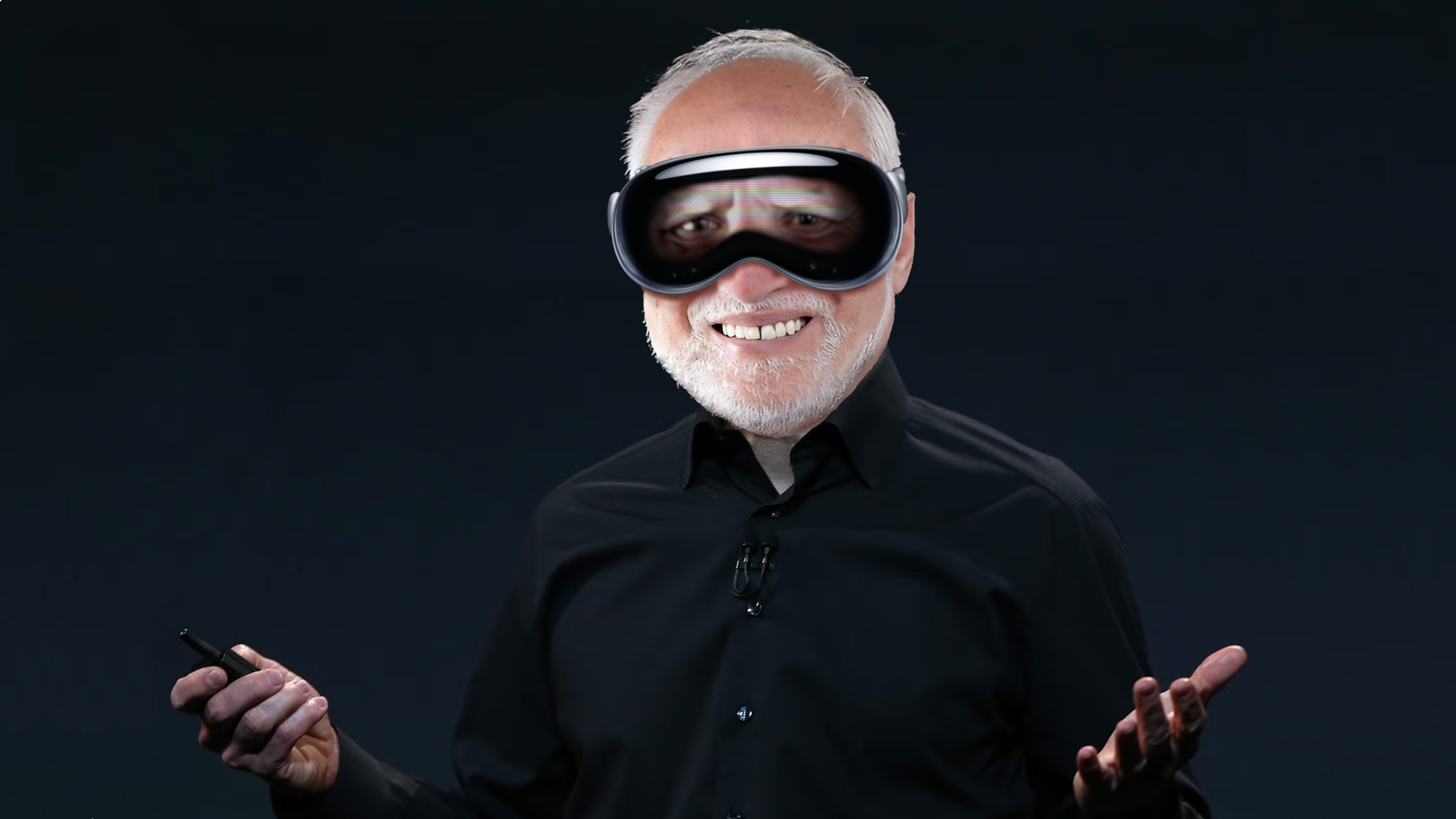
It was a busy month for Apple, they also had to contend with mounting pressure from the European Union —- who had seemingly realized that in the absence of Jony Ive, Apple was in desperate need of some design direction. It’s just a shame that what the bigwigs of Brussels had in mind was to demand Apple make 10-year-old Android phones to comply with its new regulations on e-waste and single charging solutions.
This funneled the design of the upcoming iPhone 15 towards adopting the standardized USB-C connection. While great news for some, it would pull much of Apple’s focus away as it then had to contend with updating its catalog of accessories — which was a real pain for the Cupertino crew before they realized it meant they could sell them to you all over again.
July: Samsung invites you to join the flip side, Twitter and Threads step into the App-tigon
Samsung would once again take to the stage in July to stand beneath the beaming god rays of the Galaxy Z range and introduce the world to its latest Z Flip 5 and Z Fold 5 foldable phones. The difference between these phones and the ones that came prior was so small that it had viewers like me quickly double-checking they weren’t accidentally watching a repeat of 2022’s Unpacked event.
A new and improved cover screen would be the spotlight stealer when it came to the Galaxy Z Flip 5. However, Motorola would go on to steal its thunder by delivering a near edge-to-edge external display on its Razr Plus foldable. Still, nothing came close to competing with the Z Flip 5 when it came to durability.
The next month, the two devices would face off in YouTuber Mrkeybrd’s “Great Folding Test,” which was kind of like a live-streamed tech version of a Saw movie. The test saw them both exposed to everything from heat, dust, water, and sand to cake batter. Incredibly, Samsung’s Z Flip 5 survived over 400,000 folds throughout these conditions, dispelling many people’s (including my own) bloviated fears about the fragility of the foldable entirely.

July was also the month that would see the internet’s hotbed of hot takes, Twitter, follow in Prince’s footsteps and turn itself into a symbol — in this case the letter X. Just like Prince, Elon was also at hand to teach us what it sounds like When Doves Cry, or at least whatever avian Larry the Bird was meant to represent, as Musk promptly axed the brand’s iconic feathered mascot without a second thought.
This blatant display of cartoon animal cruelty was too much for some, as users began to leave the site in droves to find a new platform to call home. Conveniently, data-gobbling internet superpower Meta was on hand to provide refuge for those taking part in the X exodus by launching Threads — a shameless Twitter clone and text-only Instagram spin-off.
Tensions mounted between rival CEOs Musk (X) and Zuckerberg (Meta) over this, and we as a society almost bore witness to the greatest reboot in history as the two threatened to engage in a real-life version of MTV’s turn-of-the-century claymation smash hit Celebrity Deathmatch inside the Octagon. Sadly, sanity prevailed, and my billionaire bloodlust remains unsatisfied.
But hey, there’s always 2024 to look forward to. I, for one, am keeping my fingers firmly crossed over the possibility of witnessing a series of low-Earth orbit space battles between Musk and Bezos as they fight for control of the Moon.
August: Snapchat gets a sentience scare and Samsung makes a foldable iPhone
August was a bit of a quiet month in tech. Oh, except for the brief window of time in which Snapchat users were scared senseless as the app’s AI chatbot (creatively named “My AI”) seemed to go rogue and post what appeared to be the image of a corner of a room to its Snapchat story.
As hilarious as it was to watch Zoomers freak out and panic over what was eventually revealed to be little more than a software glitch, it did drive home the realization that fears over AI were not simply a generational thing. And nor could they be so easily swiped aside by a casual “OK, Boomer.”
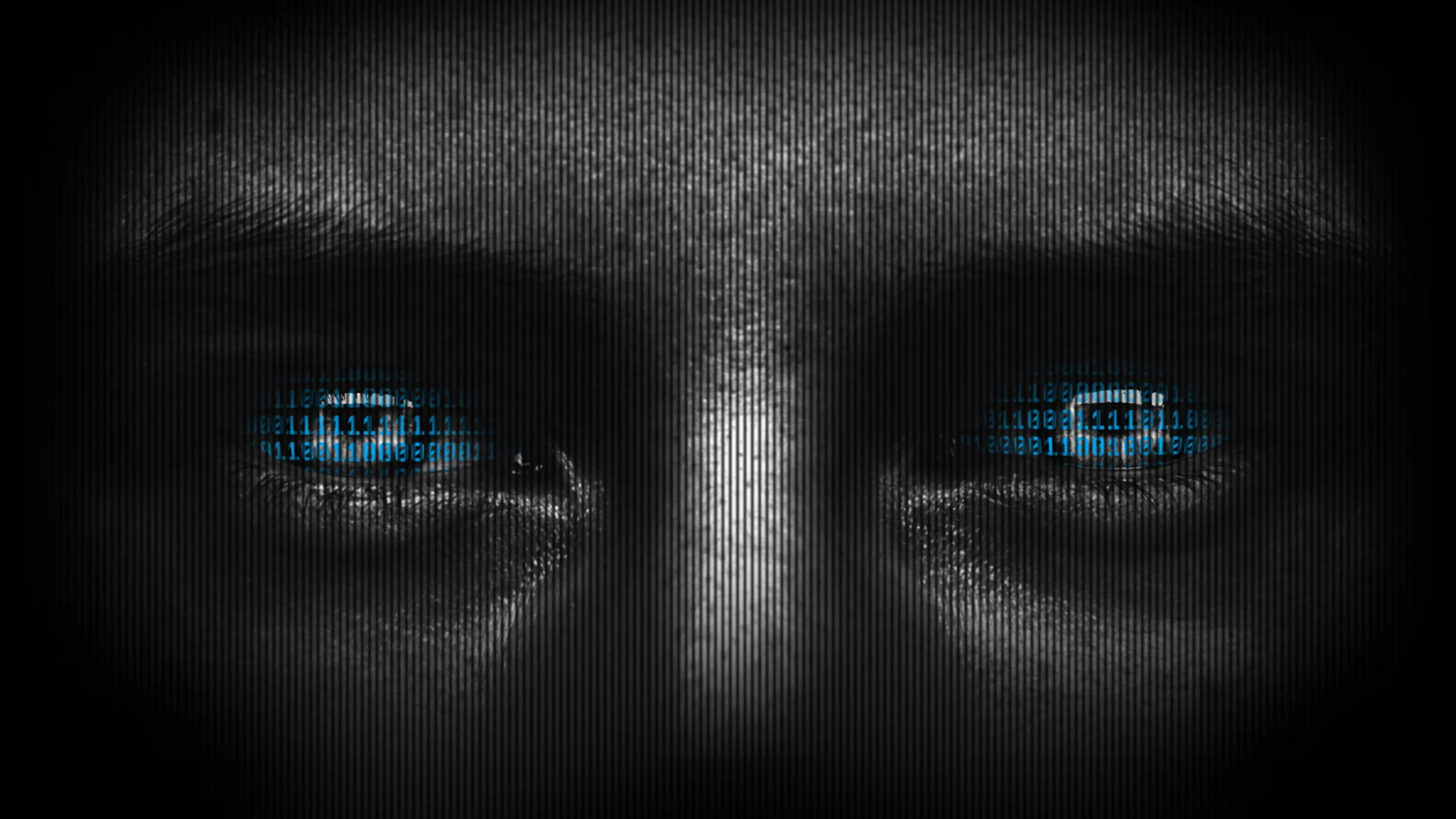
Fears of AI’s growing impact on our lives and futures had become part of the zeitgeist. And, while we all happily enjoyed the benefits of these new AI entities in our browsers and spreadsheets, our panicked snap reaction to the disturbing ways in which it can be used or potentially act out was a stark reminder of the potential threat that this technology poses.
That’s all very serious and dark, and more than a little bit foreboding. Thankfully, Samsung brought a bit of levity to proceedings after it decided to grow a sense of humor and show Apple how easy it is to make a foldable phone — by sticking two iPhones together with duct tape.
In actuality, the entire venture was in aid of showcasing the foldable experience to Apple smartphone users in the hopes of luring them over to the flip side. Awkwardly, if there’s any group of people who wouldn’t need an introduction to the experience of having a bent phone in your pocket, it’s those who would likely have owned the iPhone 6.
September: All hail the iPhone 15 but Microsoft Surface struggles to impress
Speaking of iPhones, Apple’s Wonderlust event would follow, and there we got to see the official reveal of the iPhone 15 and iPhone 15 Pro. While nothing much changed on the surface of things, it was all about what was concealed under the hood – with a wealth of hardware and software upgrades making the iPhone experience its best to date.
From Apple’s latest A17 Pro Bionic chipset to an all-new titanium chassis, the iPhone 15 Pro Max would wow and amaze with its incredible performance and gaming potential. Not only that, the photography experience would receive a substantial boost thanks to a 48MP main shooter and a tetraprism telephoto lens. Better still, the iPhone became the first phone able to record spatial video (explaining the rejigging of its lenses), conveniently re-experienced through Apple’s Vision Pro headset in glorious 3D.
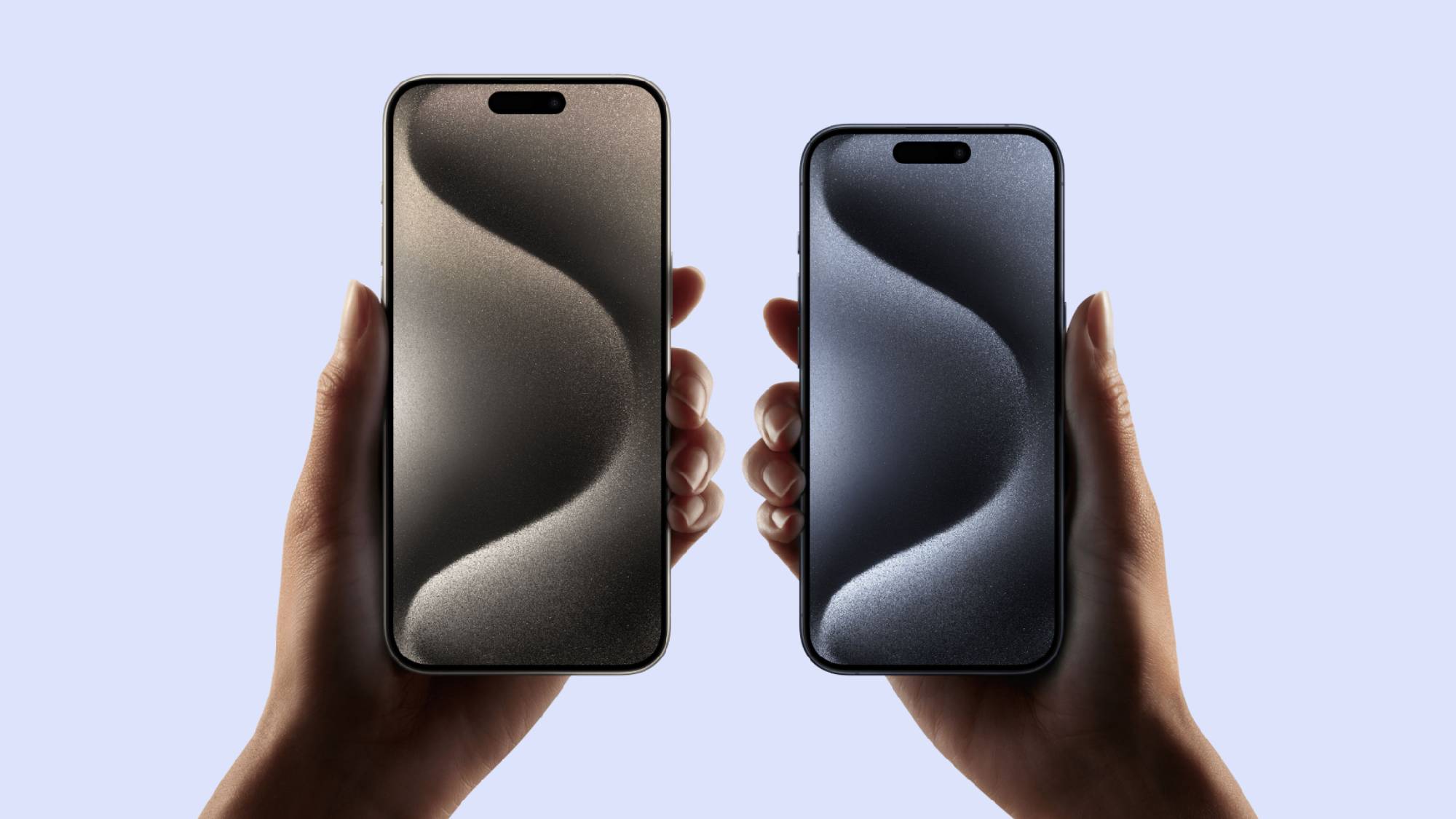
One of the more amazing things about Apple’s September showcase was the fact that somebody at Microsoft presumably watched it before thinking to themselves “Yeah, we can follow that.” Spoiler: They couldn’t.
The best thing I can say about Microsoft’s special September Surface event is that “It was a thing that happened” and, as far as I could tell, no animals were harmed in the process. Microsoft’s showcase was narrow in scope and high in price, without much in the way of considerable change. To put it plainly, it was a showcase so abysmally poor that you’d presume the only reason this lineup kept the name Surface was because it had effectively hit rock bottom.
The decline of the Surface lineup was reportedly the result of Microsoft’s shifting focus towards AI, with the tech giant being forced to tighten the purse strings when it came to its more experimental and premium hardware lineup. It would also result in Chief Product Officer Panos Panay abruptly leaving his beloved post as Surface lead — only to be quickly snatched up by Amazon to help bring some of that premium Surface hardware magic to the Bezos brand’s Kindle and Alexa lineup.
Panay may have bitten off more than he can chew on this one. Personally, I believe the only way to bring about the ‘fire’ in a Kindle Fire is to douse it in gasoline and store it next to a batch of faulty live wires. But that’s just me.
October: Microsoft buys Activision and Apple’s ‘Scary Fast’ M3 MacBooks
Apple enjoyed back-to-back victories on the hardware front as they made October the month that they finally unveiled the power of the M3 chip to the world. While it signaled the death of the Macbook Pro 13, it was the dawn of a new generation of Macbook Pro laptops. Faster, more efficient, and now showing considerable gaming potential, it would seem Apple is at the peak of its game with devices like the M3 MacBook Pro 14.
Little did we know at the time that Cupertino’s riding of the Apple Silicon success wave wouldn’t go unchallenged for too much longer. As, in the very near future, Qualcomm would present itself to the world as the next big thing when it comes to performance prowess – announcing the Snapdragon X Elite processor, reportedly up to 21% faster than Apple’s M3.
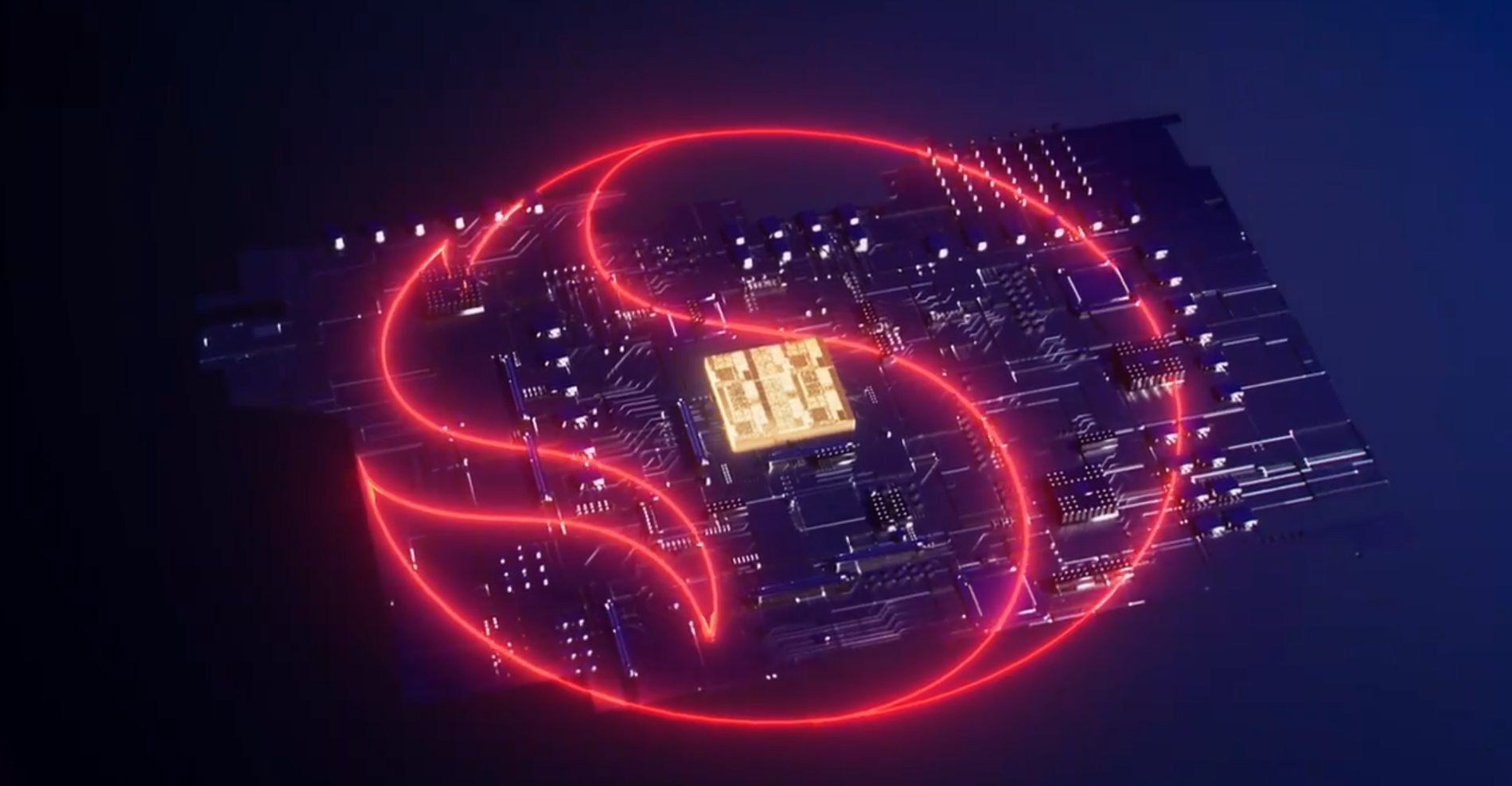
October also saw Microsoft finally bring a close to its $68.7 billion acquisition of Activision Blizzard after months of regulatory grilling over antitrust and anti-competitive concerns. Chief rival PlayStation would protest the merger out of fear that Microsoft would make popular titles such as Call of Duty a future console exclusive (and let’s face it, they probably would if they could, the rotters) — something that Sony repeatedly said would be disastrous for the company, hilariously invalidating years of exclusive first-party titles on the PlayStation platform in the process.
However, a deal was eventually struck to ensure the non-exclusivity of Activision’s popular shooter for the next decade, and the only hit to Sony’s reputation would come from the months of salty and accusatory tweets venomously spat by Sony CEO Jim Ryan — as he intentionally stoked the drama on social media in a bid to sway the gaming community to chastise Microsoft for their assumed divisive intentions.
Only for private emails to leak that indicated Ryan had every confidence that Microsoft didn’t intend to take Call of Duty away from PlayStation players in the first place. Oops.
Also announced in October were Google’s latest smartphones, the Pixel 8 and Pixel 8 Pro – two AI-infused handsets set to be the first to truly harness 2023’s obsession with generative AI to the fullest. The magic of Google’s Pixel phones isn’t about what’s sitting under the hood, as its Tensor chipsets are often a little middling when it comes to benchmark performance. However, Google’s all-new Tensor G3 did help set the stage for what makes the Pixel a real contender: its incredible software and computational photography potential.
The Pixel 8-Series delighted the Made by Google audience with its Magic Editor, low-light photography, and with its use of generative AI to recreate impressive detail on sections of zoomed-in photographs. There’s something about the Pixel that just reeks of future tech, even if the on-paper numbers don’t seem to align with that conclusion. However, with all that being said, Google failed to use keywords like tetraprism or titanium, so everybody went out and bought an iPhone 15 instead.
November: A cult of personal-GPT
November was the month that saw ChatGPT pioneers, OpenAI, open the doors to its boardroom before promptly throwing beloved CEO Sam Altman out of them like he was DJ Jazzy Jeff in an episode of The Fresh Prince of Bel Air. The underhanded tactics of the board drew ire from OpenAI employees who threatened to quit en masse unless Altman was reinstated.
Making matters worse was the revelation that OpenAI’s Chief Scientist and Altman ousting co-conspirator, Ilya Sutskever, had reportedly begun getting a little cultish in his enthusiasm over the potential creation of a digital being that harnesses Artificial General Intelligence (AGI).
Reports claimed that Sutskever was beginning to behave like some sort of GPT Guru as he led employees in chants of “Feel the AGI!” and even commissioned a wooden effigy of an “unaligned” AI to be made — before promptly setting fire to it in a pseudo ritualistic ceremony to indicate his commitment to OpenAI’s founding principles. Please, tell me I should be incredibly concerned about AI, without telling me I should be incredibly concerned with AI.
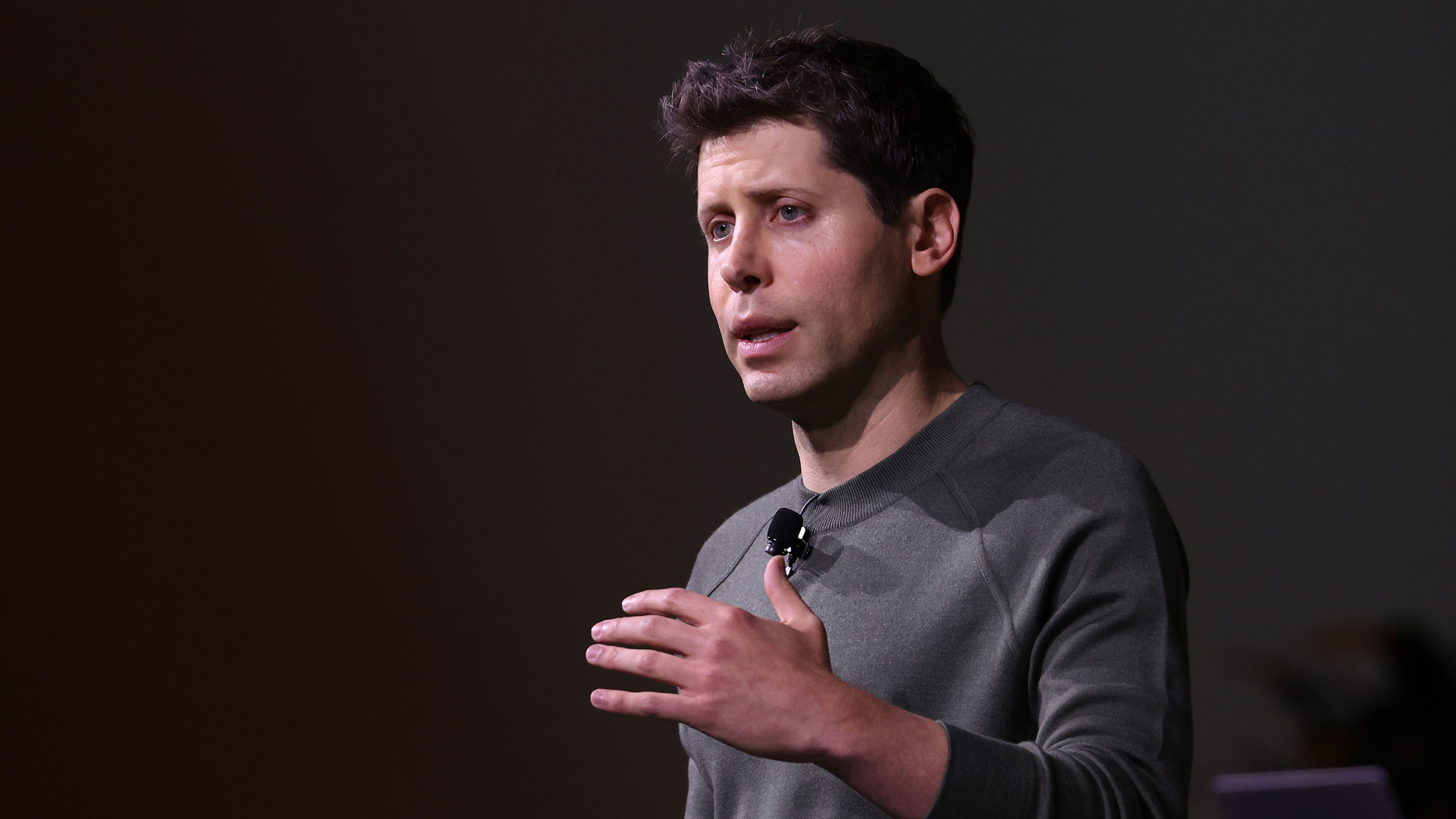
Sanity would eventually prevail at OpenAI HQ, when Altman was reinstated and Sutskever and several other complicit board members soon stepped down from their positions. It was all a bit of a whirlwind and it seems like within a week the roles had been entirely reversed – with Altman back in the boardroom and Sutskever being the one trapped outside. Potentially giving an occasional knock and asking if anyone had a moment to talk about our Lord and Savior AGI.
Remember that handheld PC gaming thing? November saw that reach even further highs as Lenovo released the Legion Go – a powerful handheld spin-off of one of the best gaming laptops money can buy.
Making use of the same AMD Ryzen Z1 Extreme chipset found in the ROG Ally, Lenovo took the handheld PC gaming experience to the next level by blending it with some of the best things about the Nintendo Switch and Steam Deck – including detachable JoyCon-like controllers that can double as a vertical mouse, and a small trackpad for precise movements. Granted, battery life is still so poor it might as well be powered by clockwork, but it’s an impressive high note to leave the handheld gaming PC on, and sets things up for bigger and better in 2024.
December: Google gaslighting, an end to E3, and the dawn of the AI PC
Looking to end the year on a high, Google would announce its December Feature Drop for Pixel devices, and in doing so introduce the world to Gemini – the company’s new multimodal AI ready to feature in everything from smartphones to servers. Pixel 8 Pro devices would gain first access to Gemini Nano to help with summarizing recordings and offering more accurate Smart Replies in Gboard. But Gemini was capable of so much more, and Google couldn’t wait to show us.
Accompanying Gemini’s announcement was a series of showcase videos highlighting Gemini’s strengths and capabilities. One of which was a hands-on demonstration showing Gemini reacting in real-time to a user’s actions and engaging in a voice-to-voice conversation at the same time. It played a version of the shell game, recognized drawings, tried to solve a magic trick, and even generated music to match what it could see from the video input. It was amazing, it was incredible, it was breathtaking, it was the stuff of dreams and legends. Oh, yeah, and it was fake.
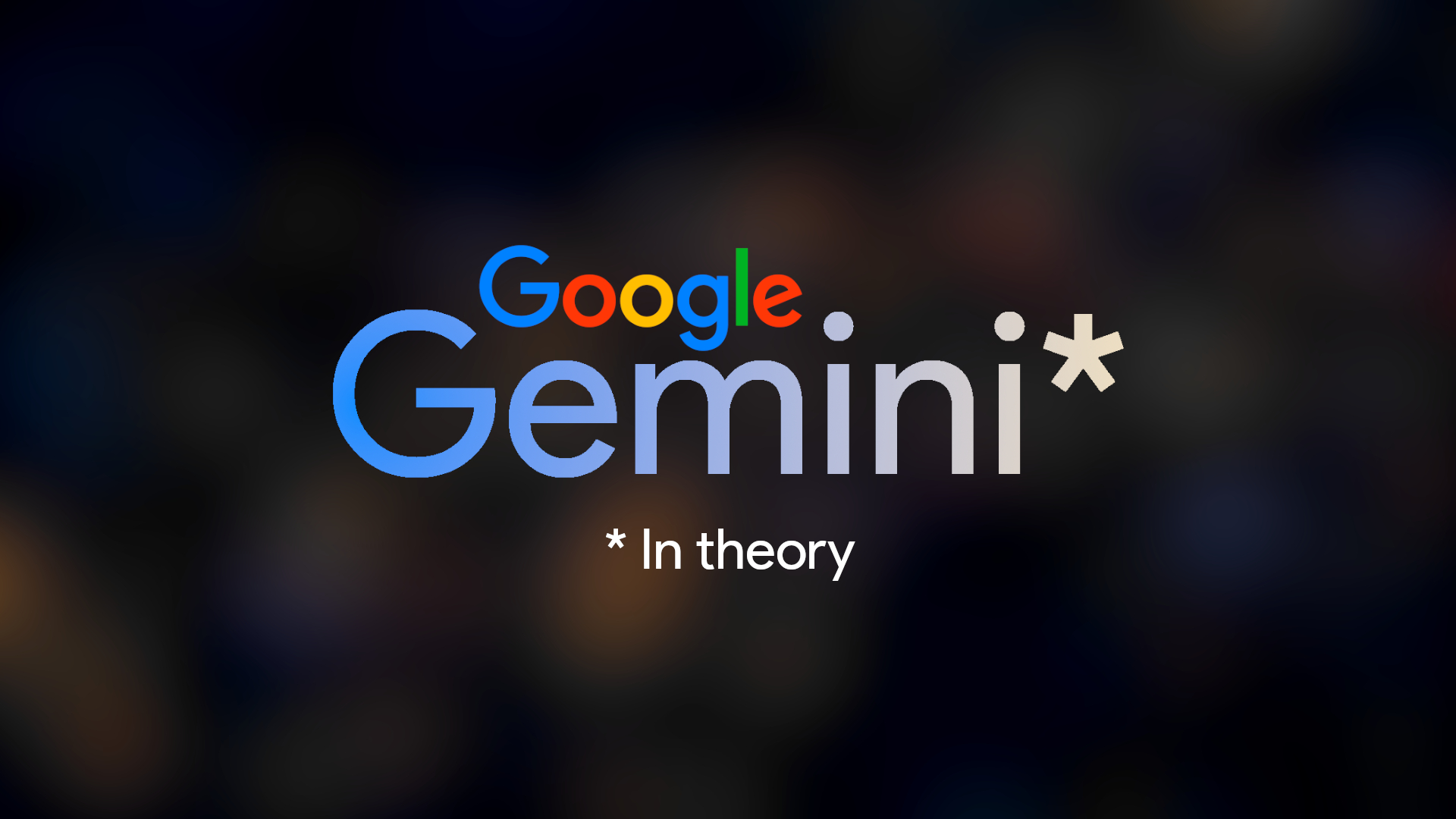
Google pulled the wool over our AIs on this one, showcasing a fake back-and-forth that was heavily edited to gently mislead viewers into thinking Gemini was far more capable than it actually was.
Thankfully, there was some good news to enjoy this month. Just kidding, guess what? E3 is canceled. And this time we mean canceled-canceled, gone forever. Kaput. One of the landmark gaming conventions for the last 25 years finally gave up the ghost after the-illness-that-shall-not-be-named disrupted the annual showcase, resulting in a struggle to regain its gaming legs ever since.
Geoff Keighley’s immediate power grab for his own Summer Games Fest didn’t help matters either. Now where am I supposed to get my annual fix of cringe from Ubisoft’s Just Dance presentation, Geoff? Answer me that. You just can’t have anything nice nowadays, can you?
Well, you can. This year ended on a particularly high note for laptops as AI actually did something good for once and brought about the age of the AI PC. A new generation of Intel Ultra CPUs came with NPUs in tow, effectively offering the brand’s most up-to-date offerings a dedicated AI engine with which to dramatically improve machine learning and AI workflows.
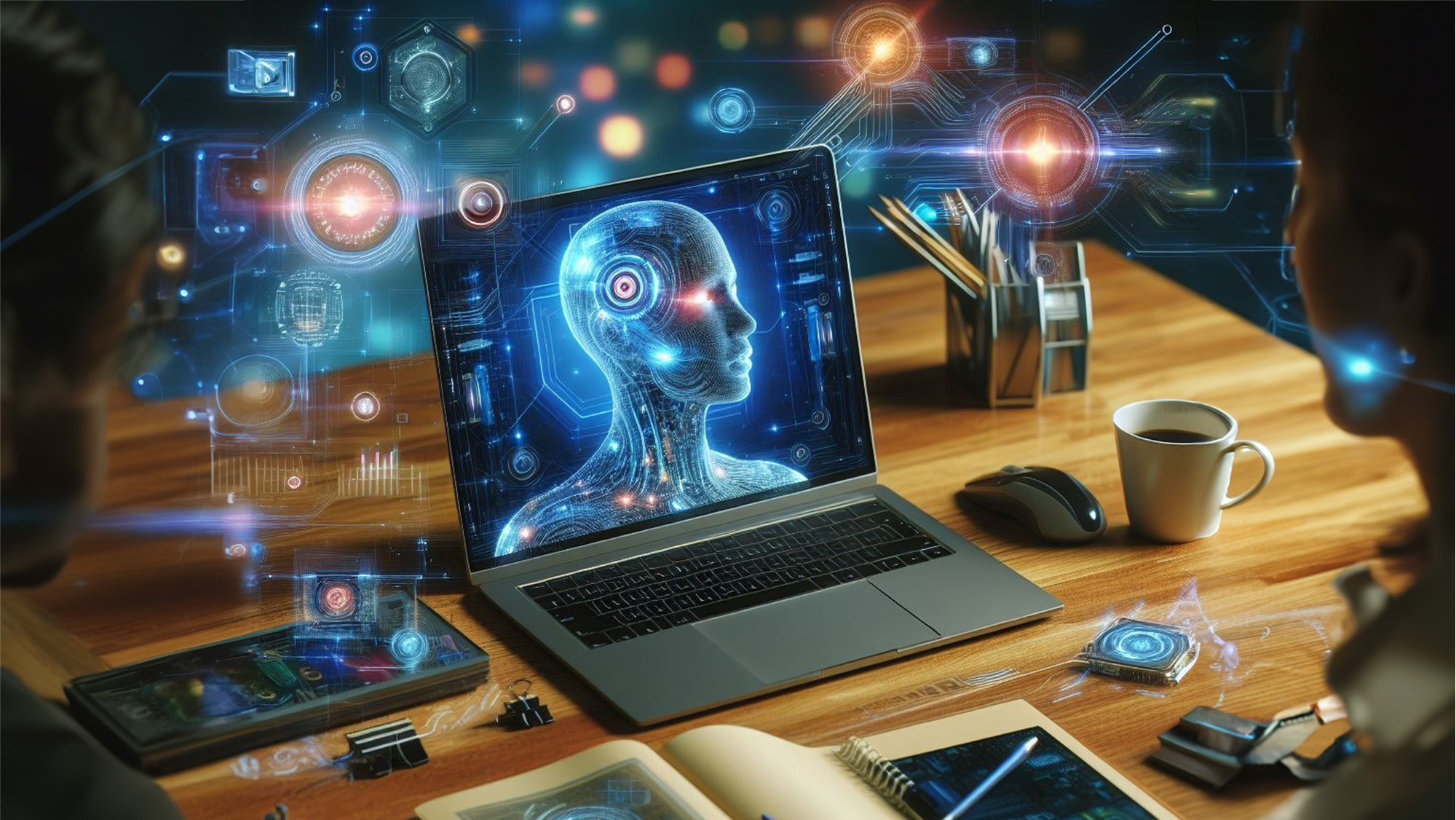
This dedicated pipeline is not only more efficient and performant, but it also takes the load away from your CPU and GPU, allowing these AI PCs to perform at their best and for longer like never before. These aren’t CES-level concepts either, you can lay your hands on an NPU-touting processor right now by way of laptops like the new MSI Prestige 13 AI EVO or Acer Swift Go 14.
While NPUs have been a popular mainstay for Apple Silicon chips for some time, it's the microprocessor’s first appearance in the wider laptop market, and has the potential to radically change the landscape if put to good use.
Outlook
What a year, and these are technically just the Cliff Notes. If one thing is for certain, next year promises just as many twists and turns as tech shifts further into AI, smart tech further expands into wearable applications, and the line between foldables and laptops continues to blur.
There’s plenty to expect when it comes to the offerings of the tech giants too, as Apple launches its Vision Pro headset, the upcoming revamp of the Apple Watch, the refresh of an iPad lineup left wanting in 2023.
Samsung will likely expand on their foldable fortunes with the Galaxy Z Fold 6 and Z Flip 6, and we could even see the widely rumored Galaxy Smart Ring make an appearance – not to mention Samsung’s long-rumored VR headset.
Google is expected to deliver the AI prowess of the Tensor G3 chipset to an affordable handheld in the Pixel 8a, and there’s even the possibility of a clamshell foldable in the Pixel family’s near future.
Even VR is expected to gain a second go at things in 2024 as both Meta and Valve have plans in mind to release a new headset. With other brands like Pico expected to give the market a solid boost too.
It’s a cliché, and it’s well worn out by now, but genuinely, 2024 could be an enormous year for tech. However, that’s not to say it’ll all go smoothly, and I hope I’m lucky enough to be here to moan about it all over again when it doesn’t.
Happy New Year. If you must.

Rael Hornby, potentially influenced by far too many LucasArts titles at an early age, once thought he’d grow up to be a mighty pirate. However, after several interventions with close friends and family members, you’re now much more likely to see his name attached to the bylines of tech articles. While not maintaining a double life as an aspiring writer by day and indie game dev by night, you’ll find him sat in a corner somewhere muttering to himself about microtransactions or hunting down promising indie games on Twitter.








